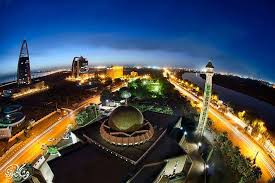Sudan Reconstruction … Thinking Outside the Box!!

Report: Akifa Al-Sheikh
Since April 15, 2023, the country has been suffering from the war that broke out between the Sudanese army and the Rapid Support Forces (RSF) militia. The repercussions of this catastrophic war are devastating as the militia targets citizens in their homes, the country’s infrastructure, state institutions, and basic service facilities, most notably water and electricity stations, which has made it characterized by systematic and deliberate vandalization and of impact on all aspects of life.
Industry losses
The losses of the industrial sector alone due to the war were estimated, according to the Minister of Industry last July, and the extent of the vandalism that occurred in the sector, was about 90% of its size. The volume of the losses of the industrial sector was estimated at (3,493) industrial facilities distributed between medium and large facilities in Khartoum State, and the number of workers in the damaged industrial facilities was estimated at more than 250,000 workers, in addition to the loss of assets.
Japan’s Experience
The Transitional Sovereignty Council (TSC) formed a high committee to assess the damage and develop a post-war reconstruction plan headed by the Minister of Finance and Economic Planning. The committee listened, in a meeting, to the Japanese experience in the field of construction and reconstruction after World War II in cooperation with the Japanese Embassy and the Japan International Cooperation Agency Office in Sudan, in the presence of committee members including ministers, experts and other concerned parties, presented by Professor Shinoda Hideaki – Tokyo University of International Studies, on the stages of the Japanese experience in peacebuilding, development and reconstruction after World War II.
China and Germany
China confirmed, through the member of the Standing Committee of the Political Bureau of the Communist Party of China, Cai Qi, its contribution to the reconstruction and development of Sudan after the end of the war.
Meanwhile, the Chief Advisor of the German Services and Consulting Group, Professor Hans Renke, discussed in the group’s meeting with the Minister of Energy, Mohi-Eddin Naeem, last February, the German group’s vision for reconstruction in Sudan and getting rid of the remnants of war by benefiting from the German experience in rebuilding what was destroyed by World War II in Germany.
Rwandan Experience
Rwanda is a model of a successful experience in reconstruction after its tragedy in the 1994 war, after which it devoted itself to rebuilding itself and proceeded with rapid steps to achieve the economic and social progress that was planned to be achieved. So some called it (the Singapore of Africa) and achieved an acceleration in its economic growth.
Resettlement
A number of reconstruction experts called for resettling concentrations outside the capital and establishing new industrial cities in the various states of Sudan and equipping them with the necessary infrastructure. A number of specialists called for the establishment of a reconstruction bank.
